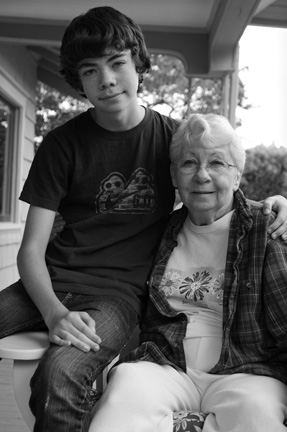Hardscrabble Salvation
From Utne magazine (originally published in In Good Tilth) Nov./Dec. 2010
In 1974 my mother, my father, and I moved from a trailer park in Cleveland to a 97-acre farm in Liberty, West Virginia. I was 13, a city brat, an only child, and I thought I’d died and gone to hell. The world I left was coated in concrete, which led to shopping centers and movie theaters. The world to which I was banished was covered in corn, beans, potatoes, and squash, which led to blisters.
A wise child would have been grateful. He would have seen that so much land, so much freedom, is worth a little blood. He would have thanked his mother for this second birth, and his father for teaching him how to care for land.
I was not that child. I fought against the land, against the work. I doubt that I passed up many opportunities to complain to my mother, and I’m sure all my grievances could be summed up as “You did this to me. You’re working me to death. You’re killing me.”

My father, who was once a tree surgeon, died of a heart attack four months after we moved, age 40, sitting in his Chevy pickup in the parking lot of an auto-repair shop, waiting to fill out a job application. My mother’s voice was hoarse when she told me. I’d woken to the sound of crying to find strangers from the funeral home sitting in our living room. She assured me that everything would be all right.
It was not all right. With winter on our doorstep, we had no running water, no heat, no electricity, no money. She did what many people in small towns in West Virginia do—she found work at a plant, and drove two hours a day, round trip from the boonies to South Charleston, which bills itself as the “Chemical Capital of the World,” to earn enough money to afford the privilege of owning and tending land.
In the evenings she came home and worked with me on the hillsides, hobbling over stumps on her one strong leg, swinging an ax, helping me clear land. She’d contracted polio at age 2, and her left leg, from the thigh down, was mostly bone.
She was relentless. She shamed me. Standing under 5 feet 2 inches, she weighed less than 100 pounds. She was a crippled widow, young and frail. Everything was against her. Yet every day she came home and worked me into the ground.
I don’t remember her ever telling me “You have to do this.” I learned my work ethic from watching her refuse to quit, refuse to succumb to poverty, refuse to allow grief to crush her and take her home and her land.
Now I measure all my work by whether it would live up to her standards. I learned from my mother that pride in one’s work is a better reward than comfort. I learned tenacity. What courage I have is rooted in her, in my memories of how hard she worked to keep us clothed, sheltered, fed. There have been times in my life—divorce, two trips to Iraq, the bitter loss of people I have loved—when I have nearly given up, but each time I turn to these memories of my mother, and I keep going.
When I was 23, still working on the farm, I stopped having normal dreams. My dreams were sightless and soundless, yet I saw stories. Words on paper, line after line after line . . . neatly typed. The stories were beautiful, and I would wake up with the last lines echoing, happy at first, then worried. Normal people—especially farm kids—shouldn’t be dreaming in Courier 12-point type.
Twenty-five years have passed since then. I’m 48, a journalist, and my work as a writer and photographer has led me 2,500 miles away from my mother and our farm in Liberty. I write about agriculture for In Good Tilth and Sound Consumer, and about the environment for other publications. I wish I could say that the words that once came to me in dreams now just pour themselves effortlessly onto paper. They don’t. Every story I write feels like five acres of corn, shot through with crabgrass, in the hot sun.
What I lack in talent, I try to make up for with tenacity. Each day I write, I try to find something that resembles the beautiful words I once dreamed. I would have given up long ago were it not for the memories of my mother’s courage. When I feel impoverished—in spirit or intellect or ability—I call to mind an image of her propping herself up with a double-bladed ax on a hillside, her face smeared with dirt, beautiful, weary, but relentless. That image has sustained me. I hear myself saying, often, “You are not killing me. You are saving me.”
I was wondering how to write this story. I was worried about what I could possibly say that would honor my mother in so few words. I dreamed I was standing inside some kind of rock shelter. There was a cleft in the stone, and outside stood a forest bathed in light. The forest is real. I’ve seen it many times, hiking through our woods in Liberty, where the trees are as familiar to me as old friends. I felt as though the light and the warmth of the forest were an invitation.
I was being welcomed.
05/06/11 | Comments | Hardscrabble Salvation